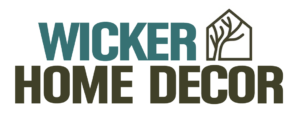Roofing is a highly competitive industry, so staying organized and efficient is crucial. Customer Relationship Management (CRM) systems tailored specifically for roofing contractors are an effective way to streamline your operations. These specialized tools can help you manage leads, estimates, projects, and customer interactions more effectively, ultimately boosting your bottom line.
Roofing contractors need a CRM
Roofing companies face unique challenges in managing their business operations. From scheduling inspections to creating accurate estimates and following up with potential clients, there’s a lot to keep track of. A well-designed CRM can help you stay on top of these tasks, ensuring that no opportunity slips through the cracks.
Key features to look for in a roofing CRM
When evaluating the best CRM for roofing contractors, consider the following essential features:
- Roof estimating software – Accurate and efficient estimation is crucial for winning bids and maintaining profitability. Look for a CRM that includes robust estimating tools tailored to the roofing industry.
- Automated follow up – Consistent communication with leads and customers is vital. The best CRM for roofing companies will offer automated follow-up features to help you stay in touch without manual effort.
- Project management – From initial contact to job completion, a good roofing CRM should help you track and manage every stage of your projects.
- Mobile accessibility – As a contractor, you’re often on the go. Ensure your chosen CRM offers a mobile app for easy access to information from job sites.
Reviews of roofing CRMs – What to consider
When reading reviews of roofing CRMs, pay attention to feedback from other contractors in your industry. Find out about ease of use, customer service, and specific features you need. Remember Find out about ease of use, customer service, and specific features you need. Remember that the best roofing CRM for your company may not be the most expensive or feature-rich option, but rather the one that best fits your workflow and business model.
Implementing your roofing CRM – Best practices
Once you’ve chosen the roofing CRM that sells more jobs for your business, follow these best practices for implementation:
- Train your team thoroughly on the new system
- Start by migrating your most important data
- Customize the CRM to match your specific processes
- Regularly review and optimize your use of the system
Choosing the right invoicing software for contractors
Roofing CRMs include invoicing features, some contractors prefer to use separate invoicing software. Choosing the best invoicing Contractor software like ProLine offers features tailored to the roofing industry, considering factors such as ease of use, CRM integration, customization, and payment processing.
To truly boost your efficiency with the Best Roofing CRMs, it’s essential to fully commit to using the system. Encourage all team members to input data consistently and leverage the CRM’s features in their daily work. Regularly review your processes and look for opportunities to further streamline operations using your CRM. Investing in a quality roofing CRM can significantly improve your business operations and help you stay competitive in the residential roofing market.






